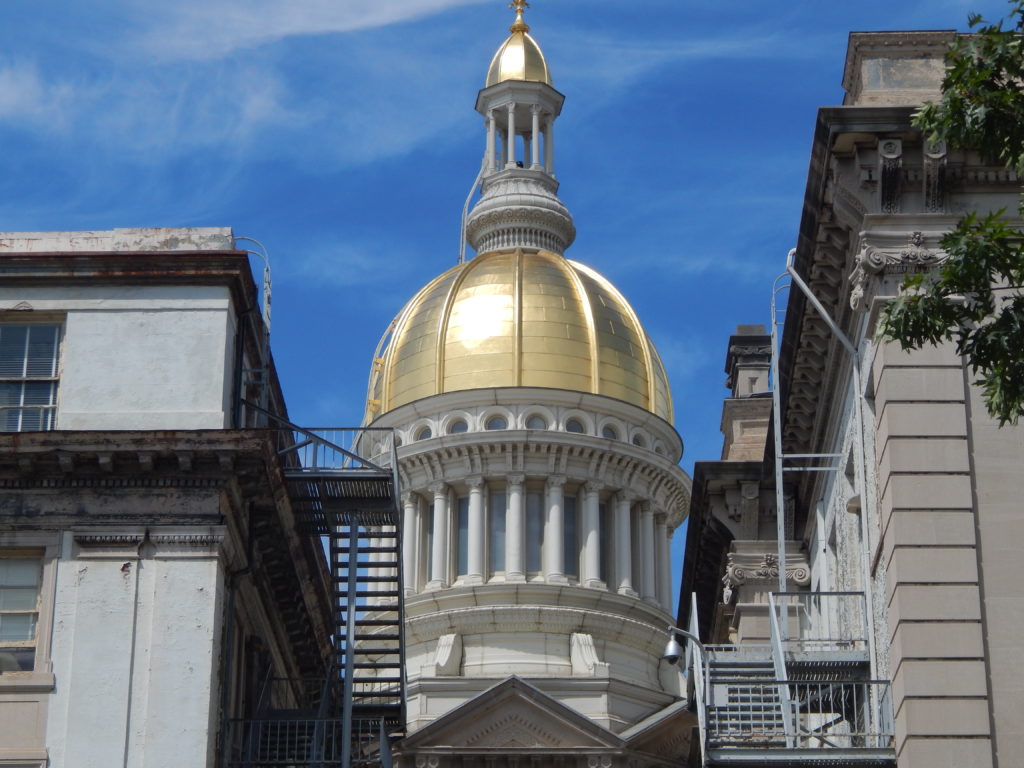Political Parties, the Building Blocks of Democracy, Need Fortifying

BY JEFF BRINDLE
How many of you vote?
I’ll ask this question when discussing political parties with a group of college students.
Most respond that they do vote.
Then I’ll ask individual students to name their State Senator, their Mayor, their representative in Congress. Most can’t name these elected officials.
And then the final question. If you don’t know who these officials are, or have any information about them, how do you know who to vote for?
After a pause, a few quizzical looks, the point is made that people vote based on the political party they identify with or lean toward.
This is but one of the important roles played by political parties. They provide a cue to voting, a guide for voters when otherwise they would have little or no information about the people on the ballot.
This column has been pressing for a resurgent party system in New Jersey, one that will offset the growing influence of outside, independent groups over the electoral process.
Two obstacles, however, stand in the way of a revitalized political party system.
The first is historic. Suspicion of political parties has been with us from the beginning of the republic.
President George Washington warned against the danger of parties in his farewell address to the nation. Disunity within his government caused by philosophical differences between Alexander Hamilton and Thomas Jefferson gave him great concern.
These differences would result in the first parties, which were caucus parties, or competing groups within Congress. These first parties were the Federalist party and the Jeffersonian/Democrat/Republican party.
Unfortunately, this mistrust has lingered until today.
The second obstacle is that independent, outside groups have become so influential over recent campaigns, at any one time benefiting one set of candidates over the other, that there is a creeping reluctance to address the issue.
These groups are independent and often operate anonymously. Candidates can distance themselves from outside groups yet still reap the benefits of millions of dollars spent on their behalf or against their opponent.
So why rock the vote? Here is why.
Distinct from single interest groups, political parties, which represent a broad coalition of interests and people, have three main purposes, all of which are central to our electoral system and government.
They contest elections, organize government, and, as noted above, label candidates and provide a cue to voting.
Political parties recruit and select candidates, either through primaries or caucus, provide polling, research and consulting services, and get voters to the polls.
Political parties engage professional party operatives and activists, part-time election specific participants and volunteers, and voters. They educate and inform, and impact public policy.
This role of contesting elections leads to a second function, that of organizing government. Unlike special interests, political parties organize the executive branch of government. High level decision making positions in the executive branch are filled on the basis of political party.
A new governor will fill his or her administration with members of his or her political party and with people who share the same governmental philosophy.
Similarly, the Legislature is organized on the basis of party. The president of the Senate and the Speaker of the Assembly are chosen based on which party holds a majority in their respective houses.
Other leadership posts are chosen in this manner as well. Control of legislative committees is based on which party is in the majority. So, policy prescriptions depend upon which party holds the reins of power.
Lawmaking is fundamental and at the heart of government. The direction that lawmaking takes is in the hands of political parties.
It can be even said that the court system is organized on the basis of political parties. Some wise person once said “a judge is a lawyer who knows a politician.” Somewhere along the way, judges either were involved in politics or expressed views sympathetic to one party or the other.
Political parties, in a phrase, are central to our electoral and governmental systems. As Marjorie Randon Hershey writes in Party Politics in America, “The American parties are unusually stable and long lived . . . Both major American parties can trace their histories for more than 150 years . . . This remarkable endurance adds to their value for voters. The parties are there as points of reference year after year, election after election, and candidate after candidate, giving continuity to the choices Americans face and issues they debate.”
The Election Law Enforcement Commission has put forth recommendations for strengthening political parties in New Jersey. They include increasing contribution limits to parties, exempting parties from pay-to-play laws, allowing parties to contribute to each other, allowing state parties to participate in gubernatorial campaigns, and loosening federal restrictions on state party federal accounts.
These recommendations, incorporated in bills introduced by Assembly Minority Leader Jon Bramnick and Democratic Assemblyman Troy Singleton, along with measures to require disclosure by independent groups, will revitalize political parties in New Jersey to the benefit of the public, electoral system, and government.
Aristotle wrote that the family is the building block of society. In the same vein, it can be said that political parties represent the building block of the electoral and governmental systems. Since America is a republic and not a direct democracy, political parties serve as an important link between citizens and their government.
Jeff Brindle is the Executive Director of the New Jersey Election Law Enforcement Commission.
The opinions presented here are his own and not necessarily those of the Commission.





